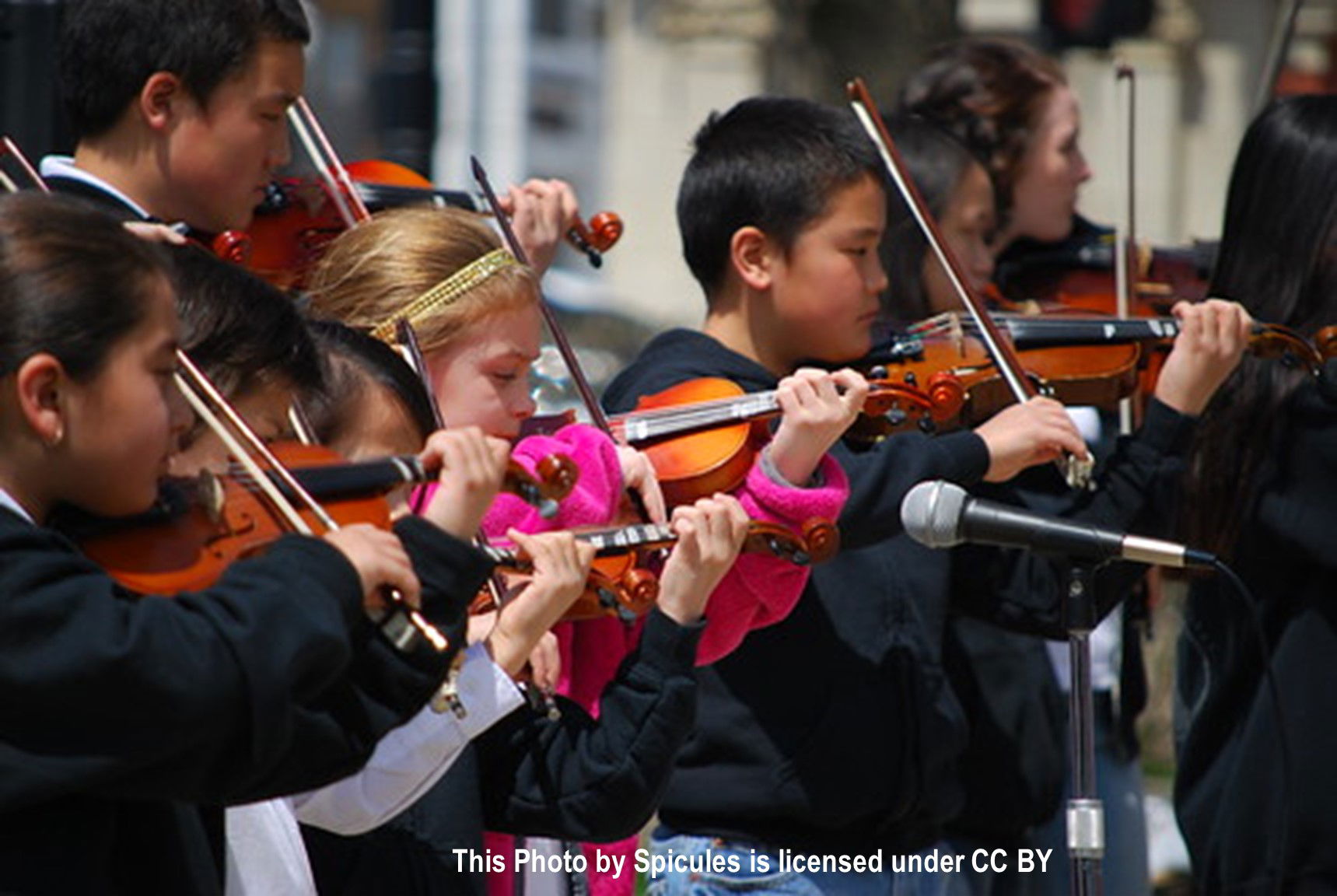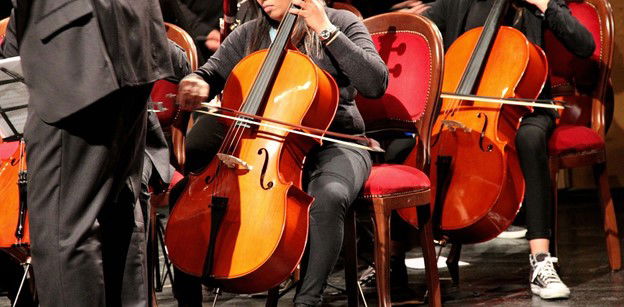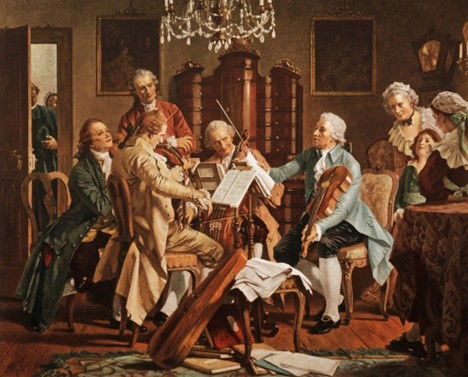The Best Things About Playing in a String Orchestra

In the world of music, the string orchestra is an ensemble that stands out for its unique and enchanting sound. It is made up of four distinct stringed instruments that create a symphony of melodic brilliance that captivates both musicians and audiences alike. The act of playing in a string orchestra offers a deeply enriching experience that transcends the boundaries of mere performance. This article examines the reasons why playing in a string orchestra is so special, exploring the sense of community, the emotional depth, intellectual growth, and the spiritual resonance that this musical journey can bring.

Sense of Community – One source of beauty that many musicians experience early in their journey of playing an instrument is the joy that can be found in making a beautiful sound on an otherwise inanimate object. The violin, or any instrument for that matter, has no breath of its own, but, when played well, can virtually sing in the hands of even a moderately competent player.
At the core of the string orchestra experience lies a sense of unity and togetherness among musicians. Each instrument contributes its unique voice, forming a diverse tapestry of sound that comes together in perfect harmony. This collective effort requires attentive listening, precise timing, and seamless coordination among players. The process of rehearsing and performing as a group fosters a strong sense of camaraderie and collaboration akin to a close-knit community.
In order to be able to play together well, players must not only know their own parts, but be familiar with the others’ parts. This is gained each time they rehearse. Players must be able to hear each other and, when necessary, accommodate any variation in intonation, tempo or interpretation. Such alternative ways of playing a section sometimes leads to a newly accepted way of presenting the music.
This sense of community extends beyond the confines of the music itself. Musicians in a string orchestra often spend hours together in rehearsal rooms, sharing their knowledge, passion, and even personal stories. These interactions create lasting bonds and friendships that can transcend the boundaries of the performance hall and last for many years to come. In a Christian worldview, this unity resonates with the biblical concept of the body of Christ, where individuals with diverse gifts come together to form a harmonious whole.
Emotional Depth – There are at least a couple dozen identified emotions, and music has the remarkable ability to convey them and to arouse them in ways that words alone cannot adequately express. The string orchestra, with its lush melodies and stirring dynamics, possesses a unique power to evoke profound emotional responses. As musicians pour their hearts into each note, they channel their feelings into the music, creating a space for both performers and listeners to connect with the depths of their emotions.
For Christian musicians, this emotional depth can be seen as a way to express the range of human experiences in light of their faith. Just as the Psalms encompass a wide spectrum of emotions — from joy and praise to sorrow and lament — playing in a string orchestra allows musicians to participate in a similar spiritual journey through music. The act of creating beauty from a collection of individual notes reflects the transformative work of God, taking brokenness and weaving it into a harmonious and redemptive narrative.

Intellectual Growth – Many studies have confirmed the fact that playing or singing music helps create and utilize brain synapses much more effectively than not being actively engaged in music. Even listening to serious music (also known commonly as classical music) can improve brain function. Playing in a String Orchestra has an additional benefit. While a fair amount of Concert Band and some Choral pieces are composed or arranged as pop music, String Orchestra music is almost entirely of a more serious nature, even if it is an arrangement of a popular piece of music. This is due to the fact that, besides the violin in bluegrass or country music, the instruments of a String Orchestra are made for serious music.
Players in a String Orchestra then have the multiple benefit of seeing the music (and possibly studying the music theory behind it), playing the music and hearing the music, not only while they’re playing but again if it has been recorded.
After new synapses have been developed during the seeing, playing and hearing process, they can then be used by the brain to carry other signals when the string player encounters new information about any subject. The new information is then learned, stored and applied much more easily than before.
You may have guessed the next step; once those new synapses are in placed and being used, new music can be learned faster and better than before. Analysis, understanding and use of the music’s theory, style and utilization are enhanced greatly.
The other disciplines that are included in music include other arts (musical form and “color”), math (time signatures, note divisions and unusual recombinations (triplets and duplets)), science (sound transmission including wave forms and interferences, tuning as it is affected by temperature and humidity), language (choral lyrics, especially in older English or other languages, tempo and dynamic marking, often in Italian or German), and technology, both digital and analog (metronome, tuner, recording). I’m sure there are others.

Spiritual Significance – Beyond the tangible bonds formed among musicians and the emotional resonance of the music, playing in a string orchestra can also hold spiritual significance. Many musicians describe moments during rehearsals or performances when they feel a deep connection to something greater than themselves. This can be likened to a spiritual experience, where the act of creating music becomes a form of worship. In the bible, Romans 1:19-21, it says that God has revealed Himself in nature and music is one of the things God has put here for people to discover. That spiritual experience that musicians may feel is God wooing them to Himself.
For Christians, music has historically held a sacred role in worship and spiritual expression. The Psalms, for instance, were sung and played in various settings to offer praise, seek guidance, and express devotion. Similarly, playing in a string orchestra can become a channel through which musicians offer their talents as a form of worship, connecting with the divine and inviting others to share in that connection.
To sum things up: Playing in a string orchestra is a uniquely special experience that transcends the realm of music. It forms bonds of community among musicians, allows for the expression of deep and complex emotions, expands the use of the mind and hold spiritual significance for those with a Christian or Jewish worldview. The blend of unity, emotion, and spirituality creates a musical journey that is not only enriching for musicians but also touches the hearts of those fortunate enough to listen. As the strings resonate and the melodies unfold, the string orchestra becomes a vessel for the human soul to communicate, connect, and reflect the beauty of both earthly and divine experiences.
Salt Cellar Creations understands the beauty and power that a String Orchestra can convey and the challenge that string orchestra directors face in choosing the best music for their ensemble. SCC and has a growing library of original works and arrangements to help meet the needs of string teachers and directors Find out more about what Salt Cellar Creations has to offer for String Orchestras HERE. Explore the available music HERE.
SCC can also compose a custom arrangement for you. There are two ways that this can be done; one is much more affordable than the other. And SCC is always looking for ideas of pieces to arrange or suggestions for original pieces. Please CONTACT ME to let me know what you think.
We have sold music not only in the US but in Canada, the United Kingdom, France, Australia, New Zealand and Austria. Please visit the WEBSITE or CONTACT US to let us know what we can do for you!